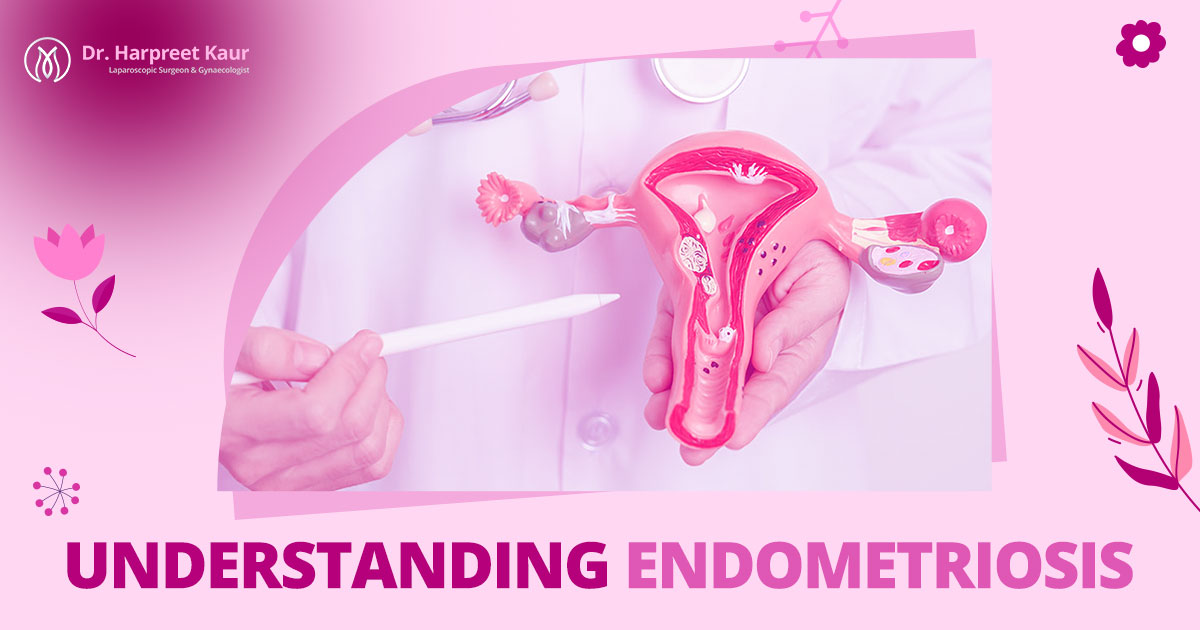Clinic Location
Care n Cure Clinic, Nayapalli, Near Hotel Crown, Bhubaneswar
For Consultation
+91 7008110200
+91 9090910009
Work Hours
Mon - Fri : 05:30 - 07:30
- Home
- About Doctor
- Services
Postnatal care
Gynaecological services
- General Consultatnt
- Adolescent Clinic
- Well Women Clicnic
- Gynaecological Surgeries
- Gallery
- Your Pregnancy
- Training
- Contact
- Feedback
- Blog
- Home
- About Doctor
- Services
Postnatal care
Gynaecological services
- General Consultatnt
- Adolescent Clinic
- Well Women Clicnic
- Gynaecological Surgeries
- Gallery
- Your Pregnancy
- Training
- Contact
- Feedback
- Blog
- Home
- About Doctor
- Services
Postnatal care
Gynaecological services
- General Consultatnt
- Adolescent Clinic
- Well Women Clicnic
- Gynaecological Surgeries
- Gallery
- Your Pregnancy
- Training
- Contact
- Feedback
- Blog
Understanding Endometriosis: Symptoms, Causes, and Treatment Options

Endometriosis is a painful and often misunderstood condition that affects many women worldwide. Dr. Harpreet Kaur, a leading gynecologist in Bhubaneswar, specializes in diagnosing and treating endometriosis. This comprehensive guide delves into the symptoms, causes, and treatment options available for this condition, offering hope and guidance to those affected.
What is Endometriosis?
Endometriosis occurs when tissue similar to the lining of the uterus (endometrium) grows outside the uterus, commonly on the ovaries, fallopian tubes, and pelvic lining. This tissue continues to act as it normally would—thickening, breaking down, and bleeding with each menstrual cycle. However, because this tissue has no way to exit the body, it becomes trapped, leading to inflammation, pain, and the formation of scar tissue (adhesions).
Common Symptoms of Endometriosis
Endometriosis can present a wide range of symptoms, which can vary in severity:
- Pelvic Pain: Often the most common symptom, pelvic pain usually correlates with menstrual cycles but can occur at other times as well.
- Heavy Menstrual Bleeding: Some women experience unusually heavy periods or bleeding between periods.
- Painful Periods (Dysmenorrhea): Severe menstrual cramps that may begin before and extend several days into the period.
- Pain During Intercourse: Discomfort or pain during or after sex is a common symptom.
- Infertility: Endometriosis is often diagnosed in women who are seeking treatment for infertility.
- Other Symptoms: Includes fatigue, diarrhea, constipation, bloating, and nausea, especially during menstrual periods.
Causes of Endometriosis
- Menstrual Disorders:
- Irregular Periods: Addressing concerns about irregular cycles, heavy bleeding, or missed periods.
- Premenstrual Syndrome (PMS): Managing symptoms like mood swings, bloating, and cramps that can affect daily life.
- Polycystic Ovary Syndrome (PCOS):
- Early Diagnosis: Identifying and managing PCOS, which often presents during adolescence with symptoms like irregular periods, acne, and excessive hair growth.
- Contraceptive Counseling:
- Safe Options: Providing guidance on the best contraceptive methods for young women, tailored to their individual needs and health.
- Gynecological Infections:
- Vaginal Infections: Diagnosing and treating common infections such as yeast infections or bacterial vaginosis.
Diagnosis of Endometriosis
Diagnosing endometriosis can be challenging, but Dr. Harpreet Kaur employs a thorough approach:
- Pelvic Exam: A manual examination to check for cysts or scars behind the uterus.
- Ultrasound: Imaging to identify cysts associated with endometriosis, called endometriomas.
- Magnetic Resonance Imaging (MRI): Detailed images to identify endometriosis locations.
- Laparoscopy: A minimally invasive surgical procedure where Dr. Harpreet Kaur visually examines the inside of the abdomen to confirm the diagnosis and determine the extent of the condition.
Treatment Options for Endometriosis
- Medications:
- Pain Relief: Over-the-counter pain relievers such as ibuprofen or stronger prescription medications.
- Hormonal Therapies: These can include birth control pills, progestin therapy, or gonadotropin-releasing hormone (Gn-RH) agonists and antagonists, all of which reduce or eliminate menstruation, thereby reducing or eliminating endometriosis pain.
- Surgical Treatments:
- Conservative Surgery: Removal of endometrial-like tissue while preserving reproductive organs.
- Hysterectomy: In severe cases, removal of the uterus and cervix (and sometimes the ovaries) might be recommended.
- Lifestyle and Complementary Therapies:
- Dietary Changes: Adopting a diet low in inflammatory foods might reduce symptoms.
- Physical Therapy: Exercises and therapies designed to strengthen the pelvic floor.
- Alternative Therapies: Some women find relief through acupuncture, herbal supplements, or mindfulness practices.
Why Choose Dr. Harpreet Kaur?
Dr. Harpreet Kaur is widely regarded as one of the best gynecologists in Bhubaneswar, known for her empathetic approach and expertise in managing complex gynecological conditions like endometriosis. She offers personalized care, ensuring that each patient receives a treatment plan tailored to their unique circumstances.
For more information or to book a consultation, visit Dr. Harpreet Kaur’s website.
Conclusion
Endometriosis is a challenging condition, but with the right diagnosis and treatment, women can manage their symptoms and improve their quality of life. Dr. Harpreet Kaur’s extensive experience in treating endometriosis ensures that patients receive the best possible care. If you are experiencing symptoms of endometriosis, don’t hesitate to seek expert guidance from Dr. Harpreet Kaur.

